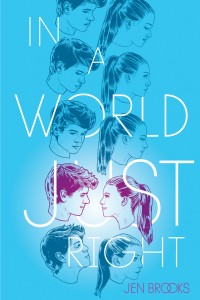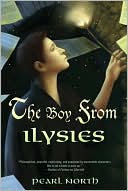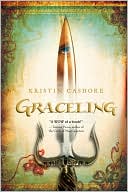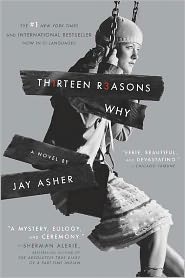books
What I learned from The Boy From Ilysies
This is the second book in the Libyrinth trilogy by Pearl North, and I think the cover blurb from Realms of Fantasy is accurate: “Philosophical, powerful, captivating, and populated by memorable characters.”
Because of my own writing interests, it is the “philosophical” that draws me most to this story. Here is the first paragraph on the dust jacket of my copy: “On a world where the only ties to Earth appear to be the books stored and protected in the vast library known as the Libyrinth, a battle once raged between the Singers, who for generations beyond remembering relied on oral storytelling to transmit knowledge, and the Libyrarians, who dedicated their lives to preserving the wisdom stored in books.” The plot of the first book, Libyrinth, basically covers the war between those who believe in the written word and those who don’t.
But the trilogy is philosophical beyond matters of literacy. There are several societies in Pearl North’s world, and besides the question of literacy, these societies are defined by their cultural definitions of the roles of women and men. The Boy From Ilysies is primarily the story of Po, a young man raised in a society where men serve women. As an exile from his homeland, he struggles with his role as a man in a new society where men and women are equals. Expectations and cultural norms are questioned by many characters in the story as the characters from different walks of life try to understand each other.
This book is useful to me as an example of how characterization, world-building, and plot are intertwined. Several major plot points revolve around decisions characters make as a result of their cultural upbringing or reaction to that upbringing. For example, Po makes the mistake of falling into his old role of subservience to a woman and almost destroys the budding utopia he calls home. This disaster drives the plot for the rest of the novel. On a related note, I paid particular attention to how North’s characters speak of and think about the differences among them and the changes certain characters undergo throughout the book.
I also found this book useful because it contains one heck of a magical object. I can’t wait to see what happens with it in the final installment of the series.
Speak up:
1 comment| TAGS:
inspiration, Libyrinth, Pearl North, The Boy From Ilysies, What I learned from . . ., YAGraceling and Thirteen Reasons Why
Have you ever read a book and thought, “That’s what I’m trying to accomplish with my writing.” I can’t recall how many times I’ve felt this way after reading a book, but I can name two times in recent memory: reading Kristin Cashore’s Graceling (which I’ve already mentioned in a previous post) and reading Jay Asher’s Thirteen Reasons Why, both YA (young adult) novels.
I can’t remember how I came across Graceling, but I think it might have been by reading Calico Reaction’s review. Graceling has a medieval-ish fantasy setting and is the story of Katsa, a young woman with a “grace” or special talent. Her grace is to kill, and her uncle, the king, forces her to be his thug by sending her against his enemies. The story follows Katsa as she rebels against her uncle and undertakes an epic journey to save the kingdoms from an evil graceling much more powerful than she. Thought-provoking questions about power, its use and abuse, pervade the story, as does the adolescent’s search for identity. Katsa must discover the true nature of her grace and make a decision on how she is going to use it. Of course, as with most good YA, there’s also a compelling love story.
I do remember how Thirteen Reasons Why came to my attention. My grad school program requires all members to read a common book for each residency. One term, the book chosen was Thirteen Reasons Why. Although I didn’t attend that particular residency, the book sounded intriguing, and I decided to pick it up. Thirteen Reasons Why is set in modern day (and is mainstream, not fantasy) and follows Clay Jensen, a high school student whose classmate, Hannah Baker, committed suicide only weeks before. He comes home one day to find a set of audiotapes in a box. He quickly learns that the tapes were recorded by Hannah before she died and are her account of the thirteen reasons why she committed suicide. Clay has received the tapes because his name is in them.
Thirteen Reasons Why is told from Clay’s point of view, but his thoughts and actions as he listens to the tapes are interwoven with Hannah’s narrative. The story is heart-wrenching, and by the end the message is abundantly clearpeople need to think about their actions and need to work on performing kindnesses because you never know how another person might be suffering. Clay, a boy most parents would love to call “son,” is a good character to illustrate the message.
As far as my writing goes, I consider both of these books inspirations. Graceling is a YA book, but it’s tone is more straight fantasy than YA and the hefty questions of power are not typical YA fodder, so it was my inspiration for the very difficult task of completing my revision of Wishstone for a YA audience. Thirteen Reasons Why gave me some confidence that I can write a novel set in modern day. Since my first novel is set in outer space thousands of years in the future and my second novel is set in ancient Greece thousands of years in the past, I was doubting I had the skills to pull off modern day YA. I didn’t think a character I would enjoy spending a novel writing would appeal to a YA audience. Sometimes I feel YA characters in books are portrayed as the adults who write YA tend to see them, rather than how they are. I’m frequently dismayed by how YA characters in other media are portrayed as caricatures. Clay Jensen, however, is a thoughtful character who, I feel, has all the appropriate reactions to what he hears on Hannah’s tapes. He felt much more real to me than any YA character I’ve encountered in a long time.
Moral of the story: my current project is a YA fantasy set in modern day. I’m sure there’ll be updates . . .



